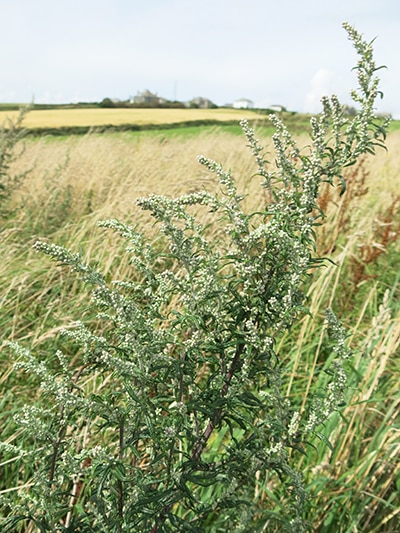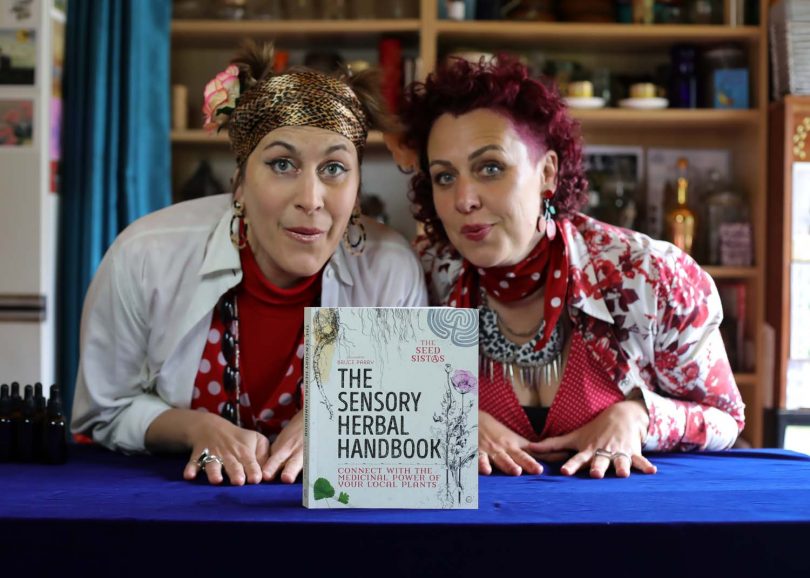Being a herbalist is a political act. Herbalism has had many ups and downs through the centuries and while it is enjoying a revival through a resurgence in interest of more self-sufficient ways of managing our healthcare, it is also seeing some of the most stringent guidelines and regulations that it has ever seen before.
We Seed Sistas met during a degree in herbal medicine, a scientific focused 4-year degree, that gave us a foundation in understanding of tissues, disease and the human body but didn’t teach deep and wonderful connection to the plants and nature.
Working together creating medicinal preparations based on lunar cycles and the energetics of the plants, we created combinations of herbs to treat the root cause of disease. We travelled the UK and Europe teaching and giving people drops to encourage altered states of being, more passionate, more self-love and nurture, courage for difficult times. Over the years we developed a system based on the plants through the seasons, we called this Sensory Herbalism.
Sensory Herbalism is based on the Western Herbal Medicine Tradition, drawing on tools and energetic language that have always been used to connect with and understand plants and people, but it differs. Western Herbal Medicine is a holistic system of medicine focused on returning a person’s health back to a state of homeostatic balance. It has become a practice with rigorous medicalised training and often (but not always) little connection to the plants themselves. Sensory herbalism differs from this. The focus is on the plants themselves. Getting to know them intimately by utilising your own senses and intuition as well as the analytical brain. It has a strong political ethos. Naturally, in following the plants, it’s become clear that habitat and diversity have come under threat. Places that can be harvested from have reduced in number since the introduction of modern farming practices and the use of pesticides. Sensory herbalism aims to get to know the plants but also to protect them and to encourage the growing of plants, the instigation of re-wilding green spaces and to pass on knowledge and information to reignite people’s interest in these most valuable, beautiful and medicinally rich beings.
There is a focus on how as humans we can restore our own health through interacting with the plants themselves in energetic doses and through the growing and harvesting of them. Sensory Herbalism has a strong focus in creativity holding great emphasis on connection to nature or spirit through storytelling, drawing, poetry. It draws on the power of intension whilst growing, crafting, and taking medicines. It is a system developed to create and strengthen the mutually beneficial relationship between herbs and humans.
Spiritual Use of Herbs
Health is not just about being physically well. As we know, there are emotional ups and downs in life, and unavoidable challenges. Through connecting with herbs daily in our food, medicine, and for spiritual practice, we can embrace these fluctuations, mark them and feel connected to spirit and to something other than ourselves alone. One of our most common go-to herbs to support spiritual practice is Mugwort or Artemisia vulgaris.
Excerpt on Mugwort from the Seed Sistas Sensory Herbal Handbook:
“Connecting with Mugwort encourages a liminal state where the boundaries of a sense of self start to dissolve and a sense of connectedness to the realm of dreams becomes palpable, encouraging intuitive insights. In these states, past, present and futures weave together. Mugwort has been associated with the sleep-wake control; the pineal gland, the gland that is active in the dream state. The pineal gland is located in the middle of the head, and it releases the hormone melatonin at night. It is thought that melatonin is a trigger for the experience of dreaming. The pineal gland is said to be the ‘seat of the soul’. Some dream theorists like Jung believed that our soul is revealed to us as we dream. Mugwort holds the secrets and mysteries of the ancestors in her incarnation. In myth and story, she is the huntress, poised with bow and arrow, the protectress of the young; she is holder of creation with the gifts she brings to birthing mothers. She is named after Artemis the Moon Goddess, twin sister of Apollo; she holds the cycles and duality of the moon’s magnetism, the full bright light and pitch darkness all contained within her. This duality of the light and dark is both the mystery and the clarity, all aspects of the feminine dancing in time with the moon’s rhythms, clearing and opening channels to our dreams, connecting right and left hemispheres, rebalancing our pineal and pituitary gland activity.

Mugwort can be drunk or burned to help enter into a dream-state and we have used her in this way to help people harness the power of dreaming; also before going out to harvest a herb, so that you might more easily connect on a vibrational level. She promotes a waking dream state, conscious attention to what our sub-consciousness is telling us and encourages the processing of emotions that come forth. The lady Artemisia has the power to work her magic in our dreams, sending us both coded and clear insights to grasp as we wake from slumber.”
The Physical Medicine of Herbs
Sensory Herbalism, after getting to know the plants, is a system of understanding the body. This relates to understanding the elemental forces that pervade through all of life. Plants express elements in varying degrees, seasons express elements, people as holistic organisms express elements and systems within the body have affinity for one or more of the elements.
The physical actions of a herb often give an indication as to its more spiritual or emotional applications. Take plantain (see below for recipes), it is a herb known as an anti-inflammatory and mucous membrane restorative. When you are bunged up or have watery, hay fever symptoms, it will calm the heat in your system and bring you back down to Earth. It also grows flat to the ground when it needs to, to avoid lawn mowers and human feet. It is adaptable. Plantain spiritually gifts us the ability to be grounded, clear thinking and flexible to our situation and environment.
Teaching Sensory Herbalism and Reaching a Broader Audience
We have taught hundreds of people on our Sensory Herbalism Apprenticeship with a view that they will learn to spread the knowledge and information that they are learning. We want access to knowledge and the power of herbalism to grow exponentially. Every student is encouraged to grow a ‘community medicine garden’ where the public can see information directly alongside the plant.
We talk and lecture at symposiums about various aspects of herbalism, including myth and magic. We take this to diverse arenas such as the yoga world, the psychedelic medicine community, druidry and paganism and inspire those that are interested in plant medicine but just maybe haven’t been exposed to it in their life yet.




